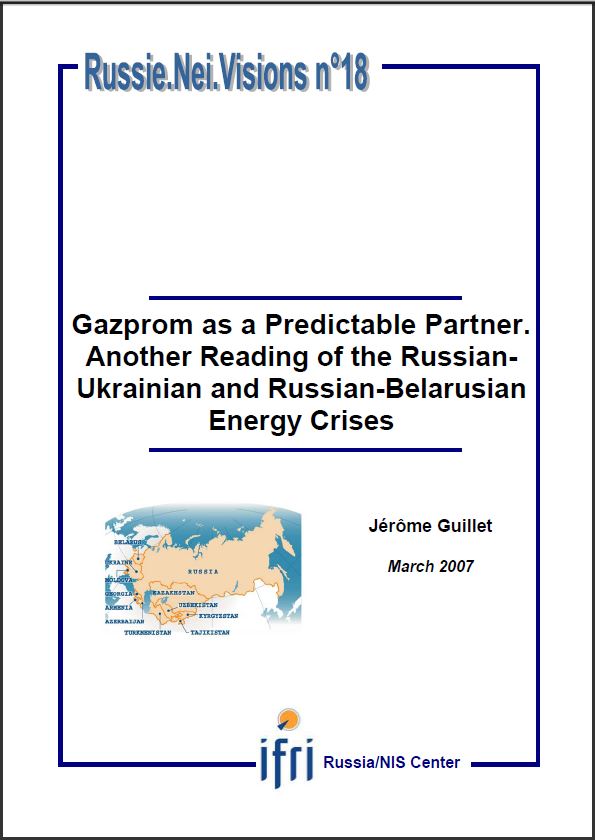Gazprom as a Predictable Partner. Another Reading of the Russian-Ukrainian and Russian-Belarusian Energy Crises

The recent crises over oil & gas deliveries from Russia to Ukraine and Belarus have triggered alarm and virulent criticism in the West.
The recent crises over oil & gas deliveries from Russia to Ukraine and Belarus have triggered alarm and virulent criticism in the West. This article describes how these conflicts are in fact not very different from those that took place in the early 1990s and reflect behind-the-scene conflicts between powerful factions inside the Kremlin and in Ukraine rather than the exercise of an "energy weapon". In the context of a European energy policy driven by Britain's panic at becoming a gas importer and by the ideological zeal to liberalize, the West should worry less about the exercise of a purported aggressive geopolitical strategy and more about Putin's lack thereof, and his inability to control his warring lieutenants. Above all, the West should stop considering that Russia owes Europe any gas beyond its contractual obligations, which it fulfills with alacrity.
Download the full analysis
This page contains only a summary of our work. If you would like to have access to all the information from our research on the subject, you can download the full version in PDF format.
Gazprom as a Predictable Partner. Another Reading of the Russian-Ukrainian and Russian-Belarusian Energy Crises
Related centers and programs
Discover our other research centers and programsFind out more
Discover all our analysesDeathonomics: The Social, Political, and Economic Costs of War in Russia
The report attempts to outline and examine a truly new phenomenon in Russian society, dubbed “deathonomics”—the making of a mercenary army against the backdrop of the Kremlin’s war in Ukraine, eventually replacing both the Soviet (conscript) and early new Russian (contract) armies. It notes that, by the end of 2023, this trend had turned the military service into one of the highest-paying professions in the country, something not seen in Russia on such a scale since the late 17th century.
Russia's Asia Strategy: Bolstering the Eagle's Eastern Wing
Among Russia’s strategic priorities, Asia traditionally played a secondary role compared to the West. In the mid-1990s, then Foreign Minister Yevgeny Primakov initiated a rapprochement with China and India. Then, in 2014, deteriorating relations between Russia and the West prompted Moscow to begin its “great pivot to the East”.
Kazakhstan After the Double Shock of 2022: Political, Economic and Military Consequences
The year 2022 represented a dual shock for Kazakhstan. In January, the country faced its most severe political crisis since independence, followed in February by Russia’s full-scale invasion of Ukraine, which cast uncertainty over the borders of post-Soviet states. These consecutive crises profoundly shaped Kazakhstan’s domestic and foreign policy.

How the Russian Army Changed its Concept of War, 1993-2022
The traditional and high-intensity war that has occurred in Ukraine since Russia decided to invade raises a key issue: did post-soviet Russian strategic thought really prepare Russia for waging this war?










